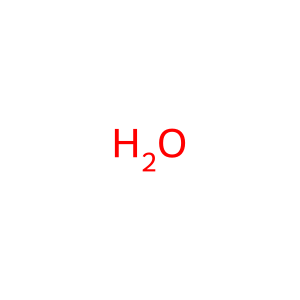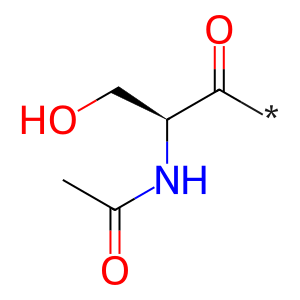Reaction: APEH hydrolyses NAc-Ser-protein
- in pathway: Eukaryotic Translation Termination
Protein acetylation, which can occur during or after polypeptide chain biosynthesis, helps protect the intracellular proteins from proteolysis. Acylamino-acid-releasing enzyme (APEH) is a cytosolic enzyme able to catalyse the preferential hydrolysis of terminal acetylated amino acids from small acetylated peptides. APEH prefers substrates with acetylated methionine, alanine and serine residues. Hydrolysis produces an acetylated amino acid and a N-terminus protein (Jones et al. 1991). APEH expression is reduced in renal cell carcinoma therefore may represent a tumor suppressor gene, whose loss contributes to the development of renal cell carcinoma (Erlandsson et al. 1991). The hydrolysis of an acetylated serine residue (NAc-Ser-protein) is shown here.
Reaction - small molecule participants:
protein [cytosol]
NAc-Ser residue [cytosol]
H2O [cytosol]
Reactome.org reaction link: R-HSA-5691512
======
Reaction input - small molecules:
water
Reaction output - small molecules:
protein
N-terminal N-acetyl-L-serine residue
Reactome.org link: R-HSA-5691512



